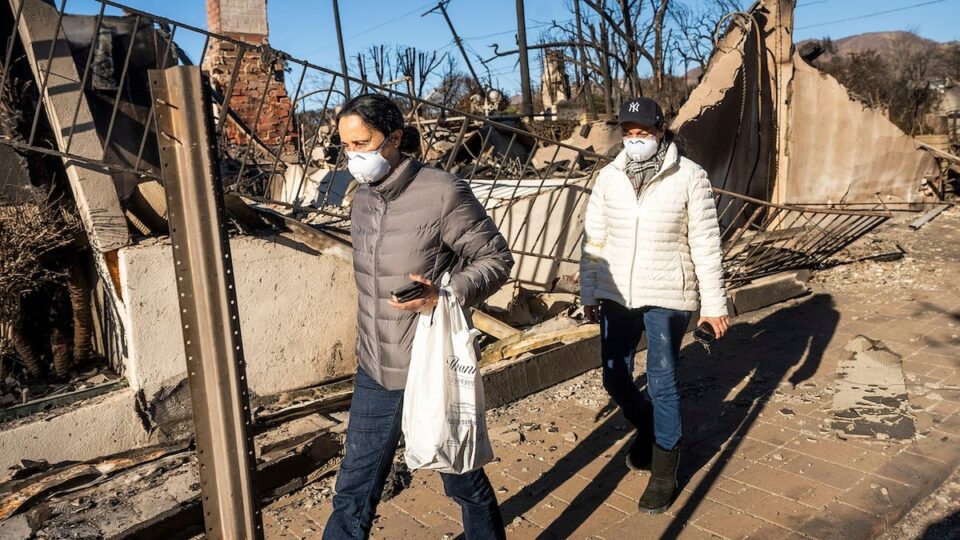The Los Angeles wildfires have caused devastating losses of homes and lives — and survivors may also face hidden, although still potentially very dangerous, health effects.
Wildfire smoke contains a “complex mixture” of fine particles that can pose hazards after just short-term exposure, according to the U.S. Environmental Protection Agency (EPA).
Known as PM2.5, or particulate matter, these microscopic particles and droplets are 2.5 micrometers or less in diameter.
CALIFORNIA WILDFIRES: NAVY VETERAN AND MOTHER SHARES HEART-WRENCHING EVACUATION FROM HER HOME AND COMMUNITY
“Your nose and mouth are entry points into your body,” Dr. Gustavo Ferrer, a Florida pulmonologist with extensive experience in respiratory health and air quality-related illnesses, told Fox News Digital.
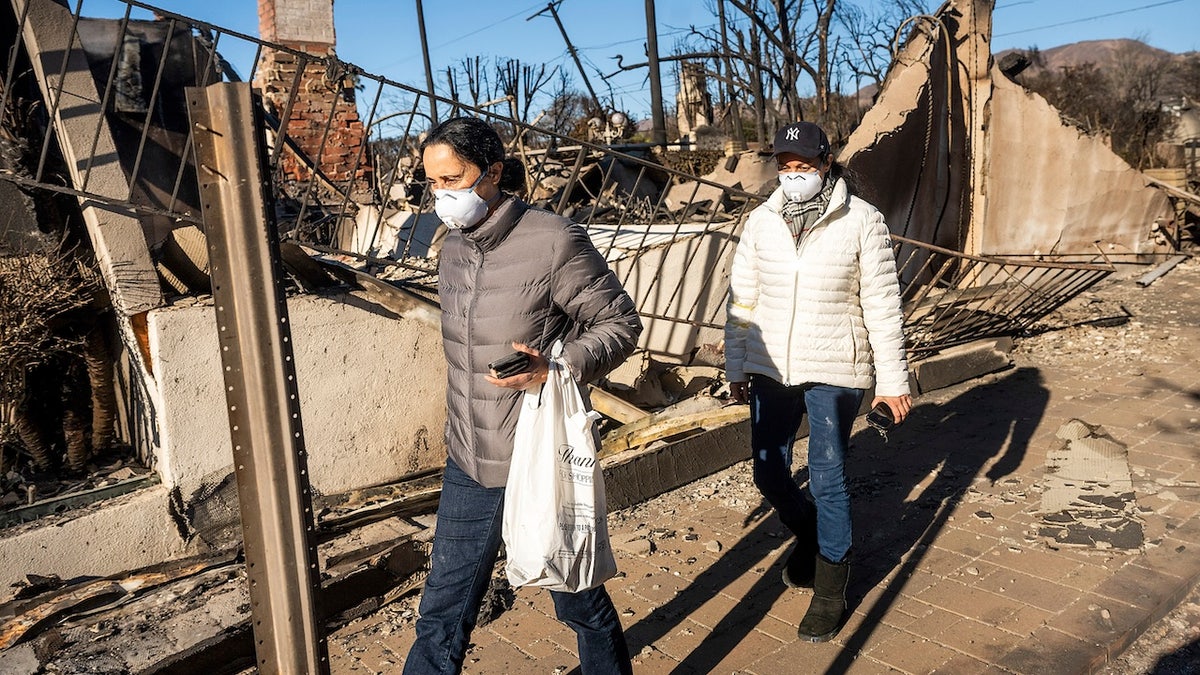
“The smoke you are breathing gets caught inside your sinuses, and if you’re exposed a lot, some of that will start to irritate the lining and lead to inflammation,” a doctor warned. (AP Photo/Noah Berger) (AP Newsroom)
“The smoke you are breathing gets caught inside your sinuses, and if you’re exposed a lot, some of that will start to irritate the lining and lead to inflammation,” he warned.
“These are signs that the pollution may be overwhelming the body’s natural defenses.”
Austin Perlmutter, MD, a board-certified internal medicine physician in Seattle, noted that exposure to wildfire smoke can penetrate through the lung tissue and enter the bloodstream.
Specific health effects
People exposed to air pollution can have a number of different symptoms, including burning eyes, sore throat, cough, sinus problems, fatigue, headaches, chest pain, shortness of breath and brain fog, according to Perlmutter.
Prolonged exposure to wildfire smoke can also aggravate existing conditions such as asthma, bronchitis and other chronic respiratory diseases, Ferrer noted.
CALIFORNIA FIRES AND MENTAL HEALTH TOLL: CELEBRITIES AND THERAPISTS OFFER TIPS
“The smoke can also worsen pre-existing respiratory conditions, like asthma or emphysema,” noted Dr. Marc Siegel, clinical professor of medicine at NYU Langone Health and Fox News senior medical analyst.
“Also, not having enough oxygen can provoke a heart attack or stroke.”
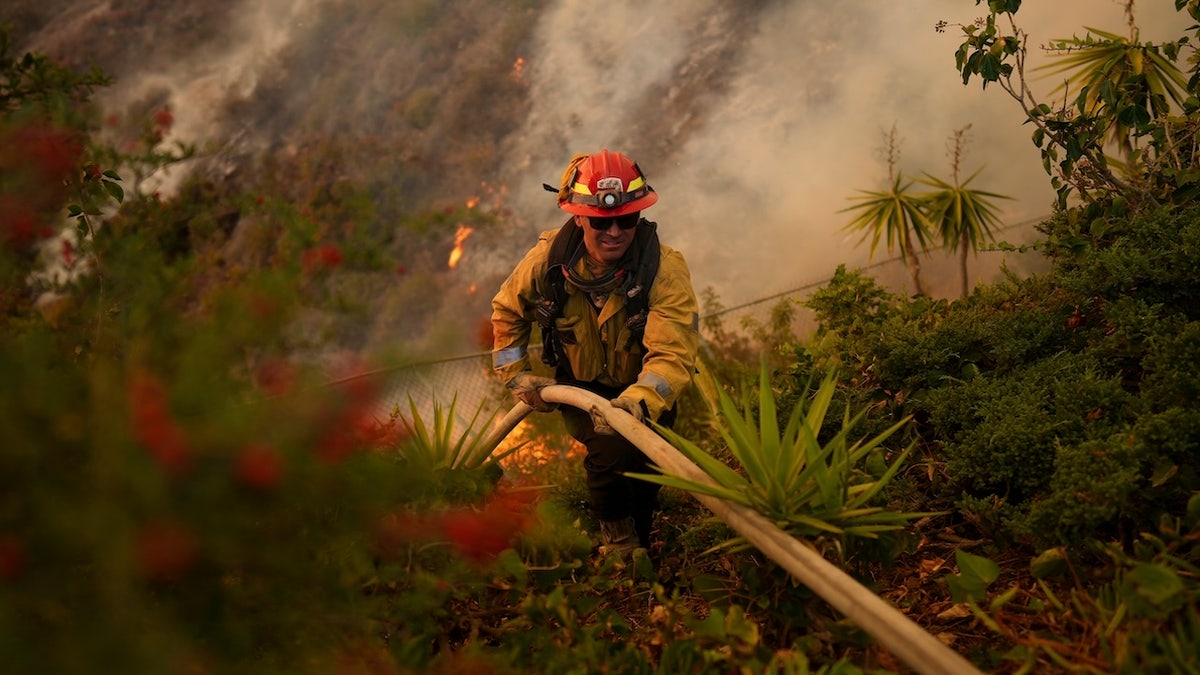
People exposed to air pollution can have a number of different symptoms, including burning eyes, sore throat, cough, sinus problems, fatigue, headaches, chest pain, shortness of breath and brain fog. (AP Photo/Eric Thayer) (AP Newsroom)
Wildfire smoke has also been linked to an increased risk of a number of diseases, including heart and lung problems and brain dysfunction, Perlmutter added.
Certain groups are at a higher risk, he cautioned, including people with underlying heart and lung diseases or other existing chronic diseases, as well as infants, young children and older adults.
“The smoke can worsen pre-existing respiratory conditions, like asthma or emphysema.”
There are also mental health effects, according to Siegel.
A 10-year study in Nature Mental Health showed a “significant mental health impact” on Californians exposed to wildfires, the doctor pointed out.
“People may feel anxiety over being displaced or fear of losing their homes,” Siegel said. “This may lead to them being unable to sleep.”
There is also the increased danger of falls and other injuries from being in damaged areas where fire-related devastation occurred, he added.
6 tips to protect health amid wildfires
Experts shared the following steps people can take to help reduce the risk of wildfire health effects.
1. Practice nasal hygiene
Keeping your nasal passages open and clean is essential, Ferrer emphasized.
“Washing daily, or up to two times a day or regularly, using a saline nasal spray can help clean the filter that’s inside your nose so it’s as effective as possible,” he told Fox News Digital.
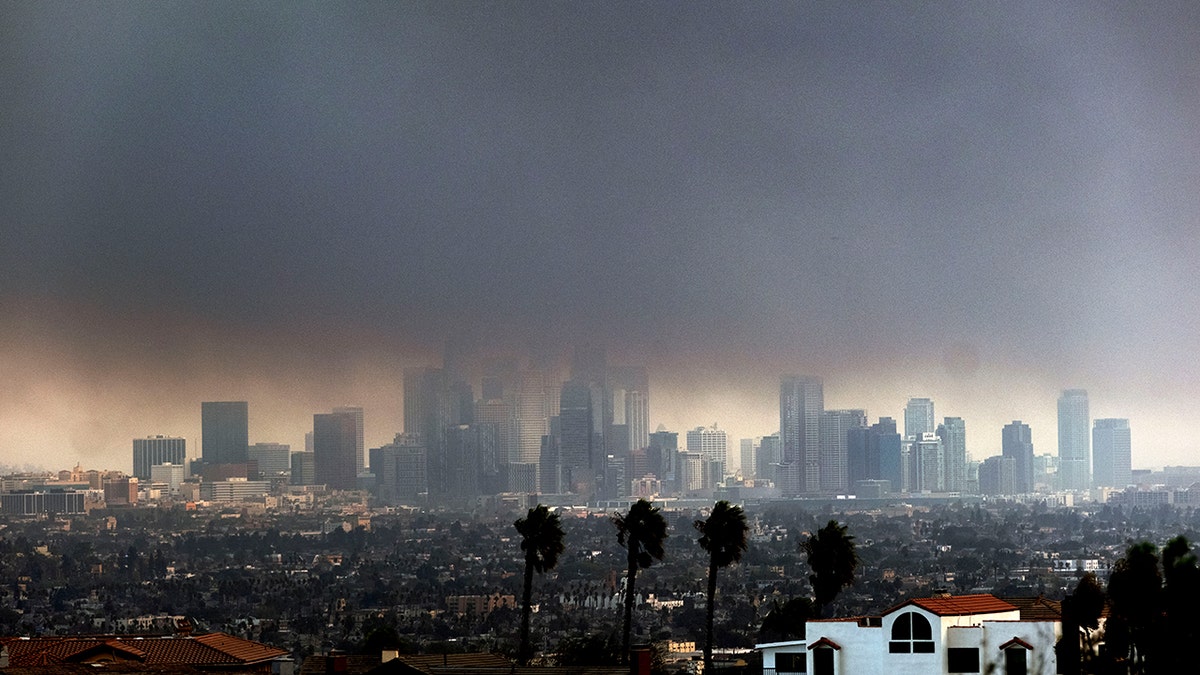
During periods of high smoke levels, it’s best to limit time outdoors and keep windows and doors closed, experts agreed. (Richard Vogel)
People can use a pre-made saline solution or make their own at home with distilled water and salt, he said.
2. Stay indoors and optimize indoor air
During periods of high smoke levels, it’s best to limit time outdoors and keep windows and doors closed, according to Ferrer.
Using HEPA filters can also help to improve air quality, Shah noted.
“Invest in air purifiers with HEPA filters to trap fine particulate matter (PM2.5) from wildfire smoke,” he suggested.
Shah also recommends using weather stripping where needed and changing HVAC filters at a higher frequency.
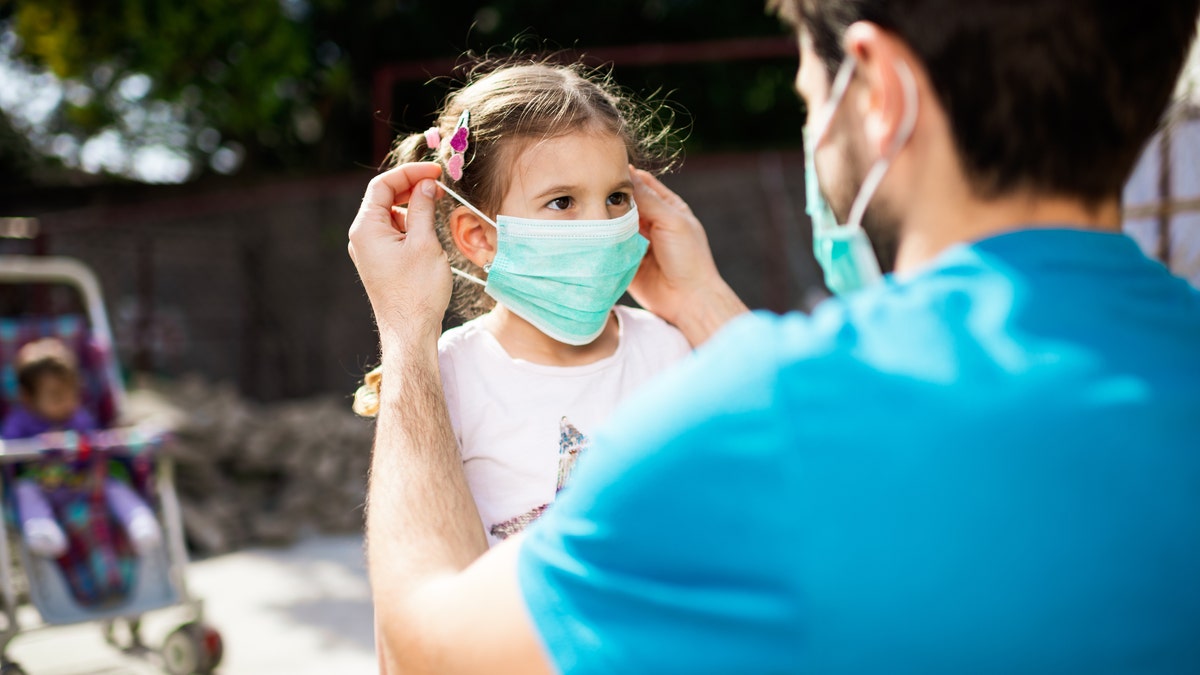
During the first few months of cleanup, excess chemicals and particulates that are released can significantly worsen air quality. (iStock)
People may also want to minimize “indoor air pollution,” Perlmutter added.
“Don’t light candles, fires or incense and don’t smoke indoors,” he advised. “If you cook, ventilate using a hood if you have one.”
3. Consider leaving the area temporarily
During the first few months of cleanup, excess chemicals and particulates that are released can significantly worsen air quality, warned Dr. Darshan Shah, MD, a board-certified surgeon and founder and CEO of Next Health in California.
CLICK HERE TO SIGN UP FOR OUR HEALTH NEWSLETTER
“Consider relocating temporarily to a safer area until conditions improve,” he recommended.
4. Wear a mask
When venturing outside, experts recommend wearing a well-fitting N95 respirator mask to filter out smoke particles.
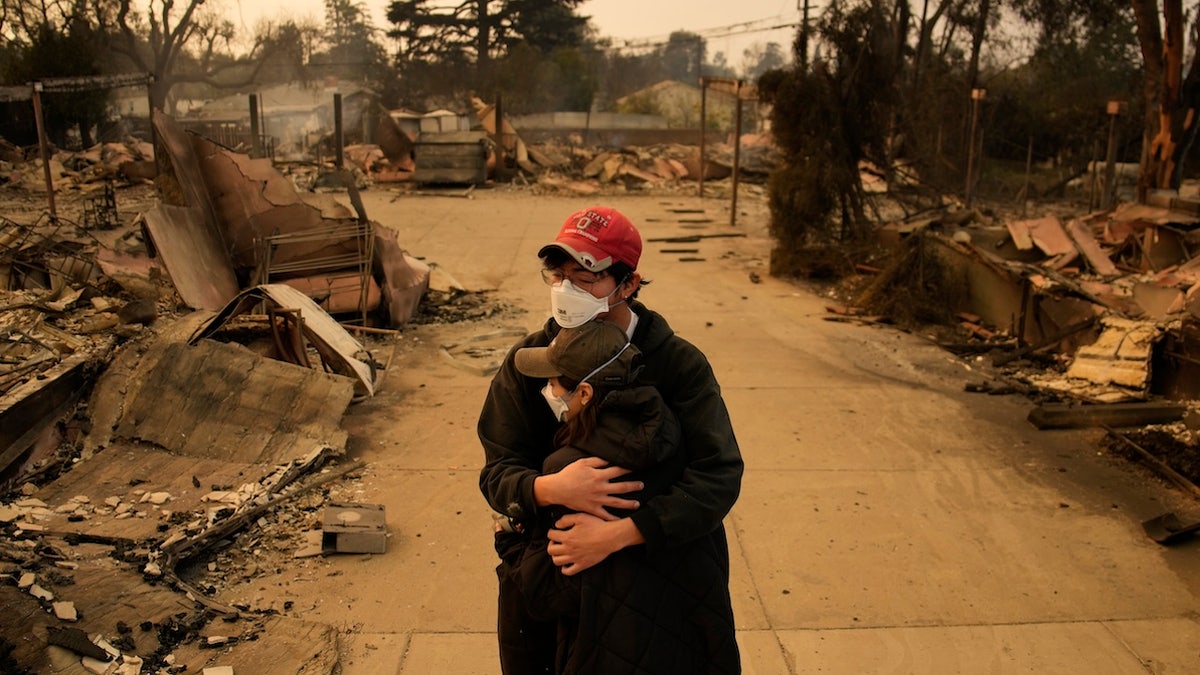
When venturing outside, experts recommend wearing a well-fitting N95 respirator mask to filter out smoke particles. (AP Newsroom)
“Cloth masks, dust masks and other lower quality masks likely won’t provide much protection,” Perlmutter said.
5. Monitor air quality
Experts recommend regularly checking the AQI (Air Quality Index).
“Use apps or websites (like AirNow) to monitor air quality and avoid outdoor activities when AQI is unhealthy,” Shah said.
For more Health articles, visit www.foxnews.com/health
6. Do not tour burned areas
“Avoid visiting recently burned areas, as they pose a high risk of exposure to harmful chemicals and smoldering smoke, which can severely impact respiratory and overall health,” Shah advised.
